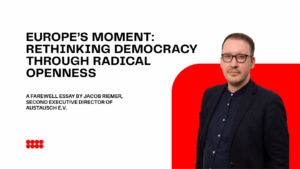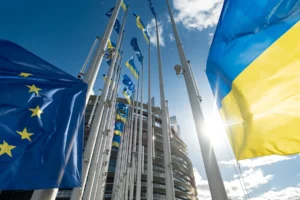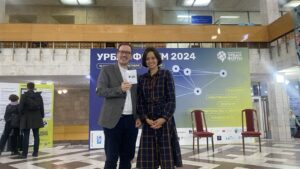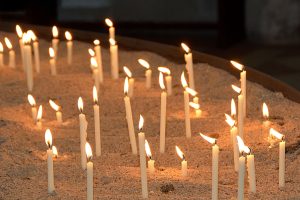Jacob Riemer
Articles

Europe’s Moment: Rethinking Democracy Through Radical Openness
A farewell essay by Jacob Riemer, Second Executive Director of Austausch e.V.

Position letter on the third anniversary of the Russian invasion of Ukraine in 2025
While debates in Germany during the election season revolve around migration, deportations, and socio-economic crises, Europe’s security order remains as fragile as ever. The radical disengagement of the U.S. administration from the transatlantic partnership intensifies the urgency for action.

Europe at a Crossroads: The Munich Security Conference 2025, the End of the Transatlantic West, and Its Consequences for Civil Society
The Munich Security Conference 2025 marks the deepest rupture in the European peace and security order since the dissolution of the Warsaw Pact, when Soviet control over Central and Eastern Europe ended.

Austausch e.V. Co-Organizes the National Urban Forum 2024 in Bishkek, Kyrgyzstan
From October 16 to 18, Austausch e.V. participated in the National Urban Forum 2024, held in Bishkek, the capital of Kyrgyzstan. This major international event aimed to promote sustainable development and improve urban environments in Kyrgyzstan and the wider Central Asian region. Bishkek, like many Central Asian cities, faces significant environmental challenges, particularly in terms of air pollution. Rapid urbanization, outdated infrastructure, reliance on coal-based heating, and vehicle emissions have contributed to deteriorating air quality, which poses serious health risks to its citizens. These issues make environmental protection a key priority on the region’s ecological agenda.

The Terror Attack in Russia as a Symptom of a Complex Crisis and Perspectives on Coping
Last Saturday, a terrible terrorist attack took place in Russia. In the following article, we aim to elucidate some background: Why have Central Asians increasingly been involved in terrorist activities in recent years? What are the causes of Islamist radicalization? Why do some of the causes lie within Russia itself? And what can civil society do about it when politics fails to take adequate measures or none at all? And what do we as Austausch to fight against the causes of Islamist radicalization?
